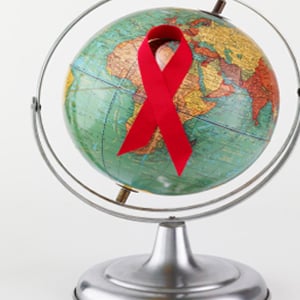
A report published by the World Health Organisation's (WHO) European office and the European Centre for Disease Prevention and Control (ECDC) showed a steady increase in new HIV cases over the last year, but by far the majority of cases were in Eastern Europe and Central Asia.
"The high and increasing number of Aids cases in the East is indicative of late HIV diagnosis, low treatment coverage and delayed initiation of life-saving HIV treatment," the ECDC/WHO report said.
Lack of prevention measures
Some 76 000 new HIV infections were reported in Russia alone, accounting for more than half the region's cases.
While reported Aids cases had been declining steadily in Western Europe, dropping 48% between 2006 and 2012, in the east of the WHO's European Region, which includes many Asian former Soviet republics, the number of people newly diagnosed with Aids increased by 113%.
Experts said this increase was closely linked to a lack of prevention measures for people at high risk of contracting the human immunodeficiency virus (HIV) that causes Aids.
These include clean needles and syringes for drug users, free condoms and easy access to HIV testing for sex workers and gay men, and early access to treatment with Aids drugs known as antiretroviral therapy (ART) – for those who test positive.
"Our data show that nearly every second person tested positive for HIV (in the region) – that's 49 percent – is diagnosed late in the course of their infection, which means they need antiretroviral therapy right away because their immune system is already starting to fail," said the ECDC's director Marc Sprenger.
Full and long lives
Worldwide, more than 35 million people have HIV, the vast majority of them in sub-Saharan Africa, where access to prevention, testing and drugs is often limited by low funds.
Cocktails and combinations of Aids drugs can keep the virus in check for many years, allowing those who are diagnosed and treated early to live full and long lives.
Yet even in the relatively wealthy WHO European Region, only one in three people with HIV is getting the ART treatment they need, report said.
Michel Kazatchkine, the United Nation's HIV/Aids Special Envoy in Eastern Europe, told Reuters in an interview this month that HIV epidemics are becoming more concentrated in marginalised groups such as sex workers, drug users and gay men, and could defy global attempts to combat Aids if no progress is made in turning them around.
Sprenger said that to start to do that more effectively "we need to make HIV testing more available across Europe to ensure earlier diagnosis and more effective treatment and care".
Zsuzsanna Jakab, the WHO's regional director for Europe, said providing Aids drugs earlier for those infected with HIV would allow them to live longer and healthier lives, and help reduce the risk that they transmit HIV to others.
"While we are not at the end of the HIV epidemic in Europe, our goal of halting and reversing the spread of HIV by 2015 is still achievable in many countries," she said.




 Publications
Publications
 Partners
Partners















